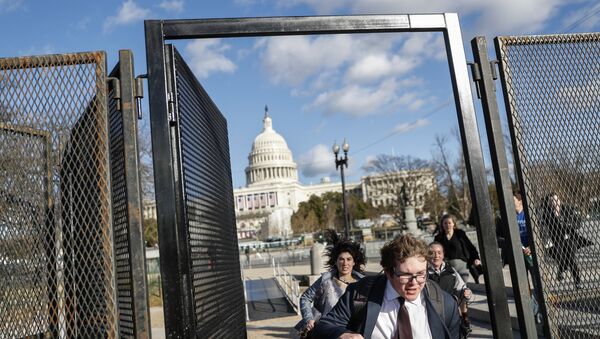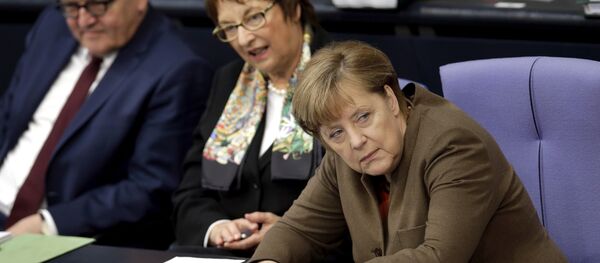The US President, who theoretically could veto the new set of punitive measures, seems to have no choice, as the US Congress passed the Russian sanctions bill with a veto-proof majority (419-3 in the House, and 98-to-2 in the Senate).
European interests, however, might be jeopardized by the new batch of sanctions, and Brussels was quick to respond. The European Commission said that it was "ready to act to protect European interests."
The College of European Commissioners expressed concern over the possible impact the bill could have on EU energy independence, as it foresees the imposition of sanctions on any company (including European ones) which contributes to the development, maintenance, modernization or repair of energy export pipelines by the Russian Federation.
"Depending on its implementation, this could affect infrastructure transporting energy resources to Europe, for instance the maintenance and upgrade of pipelines in Russia that feed the Ukraine gas transit system. It could also have an impact on projects crucial to the EU's diversification objectives, such as the Baltic Liquefied Natural Gas project," read the statement of the Commission, which it issued last Wednesday.
Russian political analysts suggested how far the US is ready to go in its sanctions war and doubted that the EU will be able to have any say.
"It is an open secret for anyone that these are not the President, the US Department of State or the US Congress who govern the US, but the transnational companies, who have become intertwined with intelligence services," RIA Novosti political observer Vladimir Lepekhin explained in an analytical article.
"Nowadays, these companies are losing many of the world markets. However, their eagerness to retain influence through the use of forces could boomerang back to the US. American hegemonism is causing annoyance almost everywhere," he says.
However the main problem of the US establishment, he further elaborates, is its unwillingness and inability to limit its appetites, abandon its cult of exceptionalism and shut down its shadow criminal businesses in Iraq, Kosovo and Afghanistan, as well as criminal bases scattered all over the world.
"While unable to honestly compete with Russia in the European market for oil and gas contracts, the American companies have forced their lobbyists to resort to blackmailing and threats. However the American elites disguise their lust for cash with an urge to fight against the so-called 'Russian threat,' which has long become a caricature in itself," the political observer says.
He further suggests that in the long run the US authorities will be able to buy and threaten EU public officials, who are by definition the same very servants of these transnational companies, as well as the US congressmen.
This, however, will have little impact on Russia, he said.
In a separate comment on the issue, political analyst Boris Mezhuev, deputy editor-in-chief of Russia's Izvestiya newspaper, suggested that in their diplomatic and sanctions standoff Russia and the US could return to the Cold War relationship, but they won't break off their diplomatic relations, as it is too dangerous for the international security.
"First of all, there could be complications with visas. The US will also pressure Europe to toughen is visa regulations with Russia. However I don't think it will go that far," he told Sputnik.
"I think that Russia has allowed a certain condescension towards Washington. However it is the wrong step in diplomacy; Trump should not have been given any credit," Mezhuev said.
"We are dealing with a country which has virtually sunk into its own problems. The US State Department is useless and all the politics are concentrated in the hands of Congress, which is obsessed with some wild feelings about Russia," he concluded.






